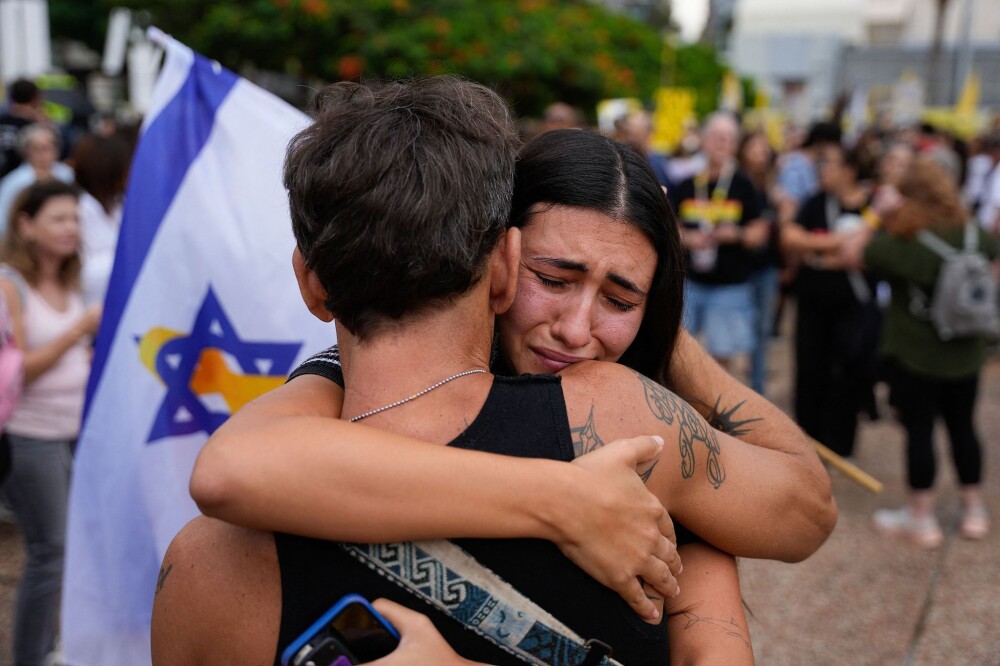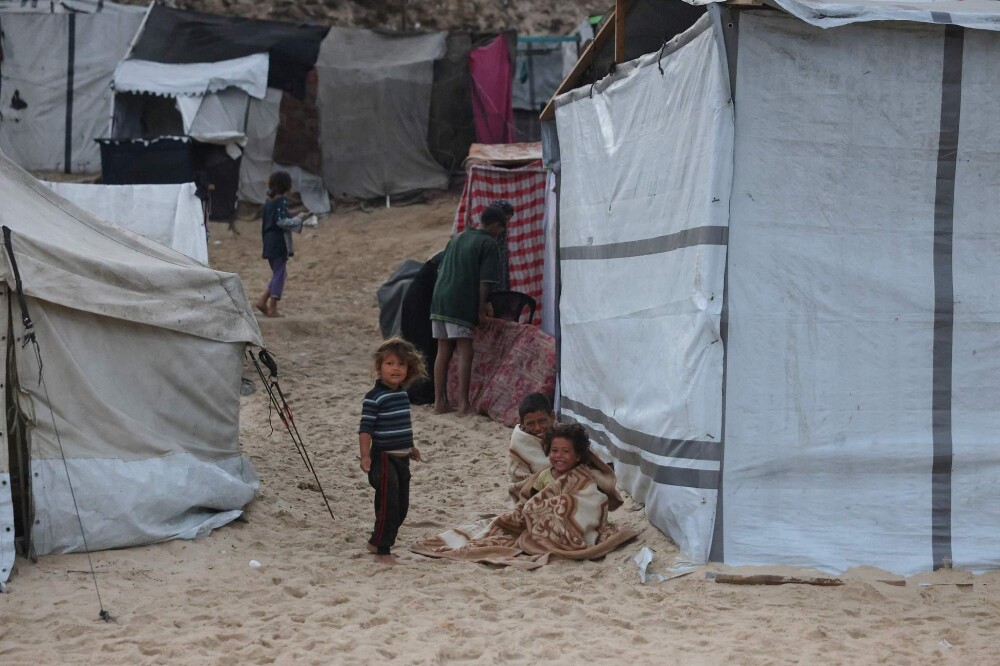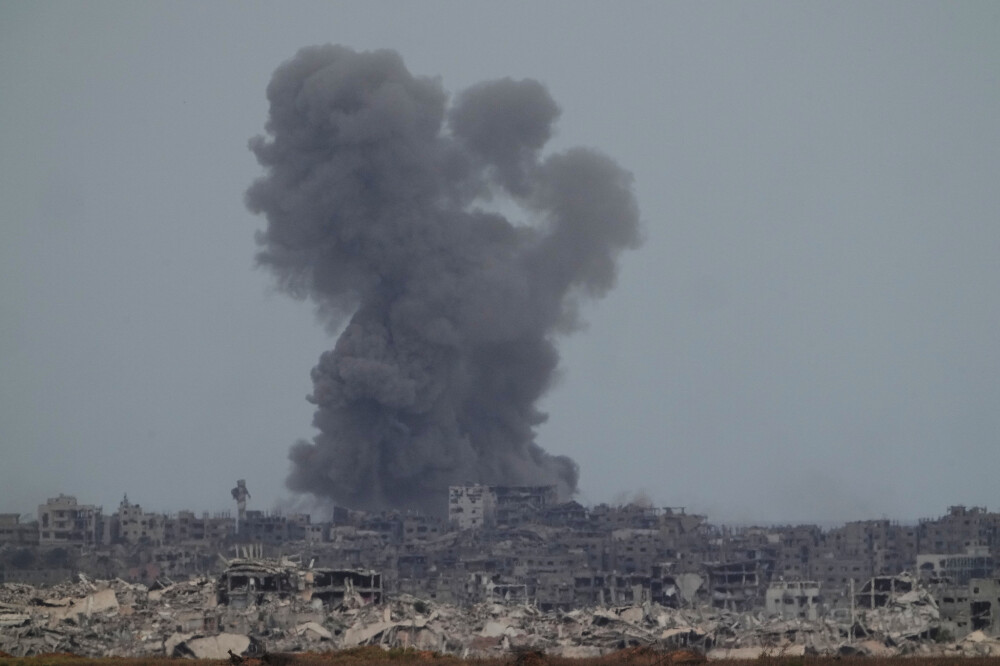In a significant diplomatic breakthrough, a temporary ceasefire agreement has been reached between Israel and Hamas, offering a glimmer of hope to the war-ravaged Gaza Strip after two years of devastating conflict.
The deal, based on the first phase of a U.S.-brokered "20-point plan," was confirmed by Hamas on October 9 and announced by U.S. President Donald Trump, who hailed it as a step toward a "strong, durable, and everlasting peace."

People react at Hostage Square in Tel Aviv on October 9, 2025, following news of a new Gaza ceasefire deal. (Photo: CFP)
Israeli Prime Minister Benjamin Netanyahu stated he would convene his cabinet to approve the deal, emphasizing the goal of bringing "all our hostages home." He thanked President Trump for his "unwavering commitment." Hamas, in its statement, called on the U.S. and mediating states to ensure Israel implements the agreement fully and without delay.
The agreement, mediated by Egypt, Qatar, and Turkey, outlines a multi-phase process. The initial stage involves an immediate ceasefire, the release of a first group of 20 living Israeli hostages held by Hamas, a withdrawal of Israeli troops to agreed-upon lines, and a significant increase in humanitarian aid entering Gaza through five opened border crossings.
A pause, not a solution
While the cessation of violence is desperately needed, analysts urge caution, viewing this as a fragile pause rather than a definitive peace.
Omar Baddar, a political analyst and former deputy director of the Arab American Institute, described the truce as a "welcome relief from the killing" but stressed that it only addresses the immediate crisis. "This is an exchange of captives. This is stopping the large-scale killing... But there's no telling whether there will be a resumption of this genocide," Baddar stated, pointing to Netanyahu's record of breaking past ceasefires.
With a death toll of 67,183 and 169,841 injured over two years of conflict, the humanitarian catastrophe unfolding in Gaza has been described by UN Secretary-General António Guterres as reaching a level that defies human understanding.
For Baddar, the prospect of a long-term solution remains bleak because the root causes of the conflict are being reinforced. He frames the problem in unequivocal terms: "There is a dynamic of Israeli control and domination over the lives of Palestinians... where they are simply not a free people in their own land."

Displaced Palestinians start their day at a makeshift camp by the beach in Al-Zawayda city, near Deir al-Balah, in the central Gaza Strip, on October 9, 2025. (Photo: CFP)
He sees no indication this will change, pointing to Netanyahu's explicit vows that "there is never going to be a Palestinian state" and that Israel will maintain "control between the river and the sea." This, Baddar asserts, constitutes "a system of apartheid," meaning that "we are simply stuck in a dynamic that is guaranteed to produce a future crisis."
Consequently, while a temporary ceasefire may bring relief, he warns that "we cannot celebrate the possibility of a long-term solution, because justice has not been achieved for Palestinians."
A symbolic victory?
On the other hand, the announcement has inadvertently reignited discussions surrounding President Trump's long-standing desire for the Nobel Peace Prize. Reports indicate lobbying efforts by several U.S.-allied nations, including Israel, to support his nomination.
Trump also stated he may travel to the Middle East this weekend as his administration aims to finalize a peace agreement that would stop the fighting in Gaza.
However, critics label this as a potential "scandal," arguing that the agreement is strategically timed and overlooks fundamental injustices.
The focus on a prize, they contend, risks overshadowing the lack of a concrete path toward a Palestinian state and the lifting of the blockade, reducing a complex humanitarian and political crisis to a symbolic victory.
The road remains daunting ahead
The critical question remains whether this truce can evolve into lasting peace. The agreement's subsequent phases, which are expected to tackle the disarmament of Hamas and the post-war governance of Gaza, are fraught with obstacles. Netanyahu has already pledged that Hamas or the Palestinian Authority will have no role in managing Gaza, while Hamas has historically refused to unilaterally disarm.

Smoke rises to the sky following an Israeli military strike in the Gaza Strip, as seen from southern Israel, Thursday, Oct. 9, 2025. (Photo: CFP)
Baddar expresses deep skepticism, stating, "You cannot respond symbolically to a state that is acting in concrete ways with overwhelming violence to destroy the possibility of Palestinian self-determination." Without meaningful international pressure on Israel to end its occupation and grant Palestinians equal rights, any ceasefire may prove to be only a temporary intermission in a prolonged and tragic conflict.
Reporter: Guo Zedong
Editor: Yuan Zixiang, James Campion, Shen He
















